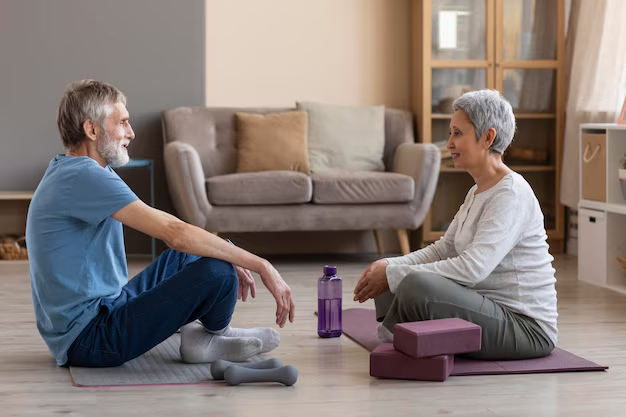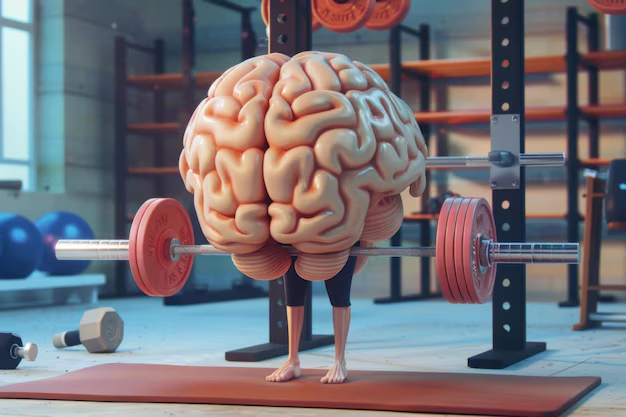In the pursuit of physical fitness, many focus on external benefits such as toned muscles, weight loss, or improved cardiovascular health. However, the impact of exercise on the brain is equally, if not more, significant. Not only does physical activity improve your body, but it also serves as a powerful tool for enhancing brain health and mental well-being. Therefore, let’s delve into the science behind how exercise benefits your brain.

Exercise and Neurogenesis: Building New Brain Cells:
One of the most remarkable benefits of exercise is its ability to stimulate neurogenesis, the process of creating new brain cells. Specifically, this occurs in the hippocampus, a brain region linked to memory, learning, and emotion.
In particular, aerobic exercises such as running, swimming, and cycling are highly effective at promoting neurogenesis. Furthermore, studies have demonstrated that regular physical activity boosts the production of brain-derived neurotrophic factor (BDNF), a protein crucial for the growth, survival, and differentiation of new neurons.
Consequently, higher levels of BDNF are associated with enhanced cognitive function, improved memory, and a lower risk of neurodegenerative diseases like Alzheimer’s.
Summery: Exercise promotes neurogenesis in the hippocampus, improving memory and learning. Aerobic activities increase BDNF levels, enhancing cognitive function and reducing neurodegenerative disease risk.
Exercise and Neuroplasticity: Rewiring Your Brain:
Neuroplasticity refers to the brain’s ability to reorganize itself by forming new neural connections, which is crucial for learning, memory, and overall cognitive function. Moreover, exercise enhances neuroplasticity by increasing blood flow to the brain, thereby delivering more oxygen and nutrients to brain cells.
As a result, this heightened blood flow supports the growth of new blood vessels and synapses, allowing the brain to adapt and improve its functioning. Additionally, physical activity stimulates the release of neurotransmitters like dopamine and serotonin, which are essential for mood regulation and cognitive processing.
Therefore, the combined effect of increased blood flow, neurotransmitter release, and enhanced neuroplasticity leads to better learning capabilities, faster information processing, and improved problem-solving skills.
Summery : Exercise boosts neuroplasticity by increasing brain blood flow and neurotransmitter release, enhancing learning, memory, and cognitive function through improved neural connections and adaptability.
Exercise and Mental Health: Battling Anxiety and Depression
Exercise is a powerful natural remedy for mental health conditions such as anxiety and depression. Specifically, physical activity triggers the release of endorphins, often referred to as “feel-good” hormones.
These endorphins, in turn, interact with receptors in the brain to reduce the perception of pain and induce positive feelings, akin to the effects of morphine. Additionally, exercise lowers levels of cortisol, the body’s primary stress hormone. Given that high cortisol levels are linked to increased anxiety, depression, and impaired cognitive function, reducing cortisol is crucial.
Consequently, by lowering cortisol and boosting endorphins, exercise effectively alleviates symptoms of anxiety and depression, leading to improved mood and enhanced emotional resilience.
Summery : Exercise alleviates anxiety and depression by releasing endorphins, which improve mood and reduce pain perception, while also lowering cortisol levels, decreasing stress and enhancing emotional resilience.
Exercise and Cognitive Function: Sharpening Your Mind
Regular physical activity significantly enhances various aspects of cognitive function, including attention, memory, and executive function. In particular, executive function involves skills such as problem-solving, planning, and decision-making. By contrast, exercise improves these cognitive abilities by increasing the brain’s plasticity, enhancing the function of the prefrontal cortex (the brain’s executive control center), and promoting better communication between different brain regions.
Moreover, research suggests that both aerobic and resistance training exercises can boost cognitive function across all age groups. For example, in older adults, exercise has been linked to a reduced risk of cognitive decline and dementia, underscoring its crucial role in maintaining brain health throughout life.
Summery: Regular exercise enhances attention, memory, and executive functions by improving brain plasticity and prefrontal cortex function, reducing dementia risk, and benefiting brain health at all ages.
Exercise and Sleep: Enhancing Rest and Recovery
Quality sleep is essential for brain health, and exercise plays a crucial role in enhancing sleep patterns. Specifically, regular physical activity helps regulate the body’s circadian rhythm, the internal clock that controls sleep-wake cycles.
In addition, by promoting deeper and more restful sleep, exercise enables the brain to undergo essential processes such as memory consolidation and toxin removal. Furthermore, exercise aids in reducing insomnia and other sleep disorders by alleviating stress and anxiety, which are common contributors to poor sleep.
Consequently, the result is not only better sleep but also improved cognitive function and mood during waking hours.
Summery: Exercise improves sleep quality by regulating circadian rhythms and promoting deeper rest. It reduces insomnia, alleviates stress, and enhances memory consolidation and cognitive function.

Exercise and Brain Volume: Preventing Age-Related Shrinkage
As we age, our brains naturally shrink in volume, leading to declines in cognitive function. Nevertheless, exercise can help counteract this process. For example, studies have shown that regular physical activity is linked to increased gray matter and white matter volume in the brain.
While gray matter is involved in muscle control, sensory perception, and decision-making, on the other hand, white matter facilitates communication between different brain regions.
Therefore, by maintaining or even increasing brain volume, exercise helps preserve cognitive function and reduce the risk of age-related neurodegenerative diseases.
Summery: Exercise helps counteract brain shrinkage with increased gray and white matter, preserving cognitive function and reducing age-related neurodegenerative disease risk.
Conclusion:
The evidence is clear: exercise is not just a tool for physical fitness; indeed, it’s a powerful enhancer of brain health. For instance, exercise stimulates neurogenesis and neuroplasticity while boosting mental health and cognitive function. Consequently, the benefits of regular physical activity extend far beyond the body.
Therefore, incorporating exercise into your daily routine is one of the most effective ways to protect and enhance your brain, leading to a healthier, happier, and more mentally agile life.
- So, the next time you lace up your sneakers, remember that you’re not just working out your body—you’re also giving your brain the workout it needs to thrive.




